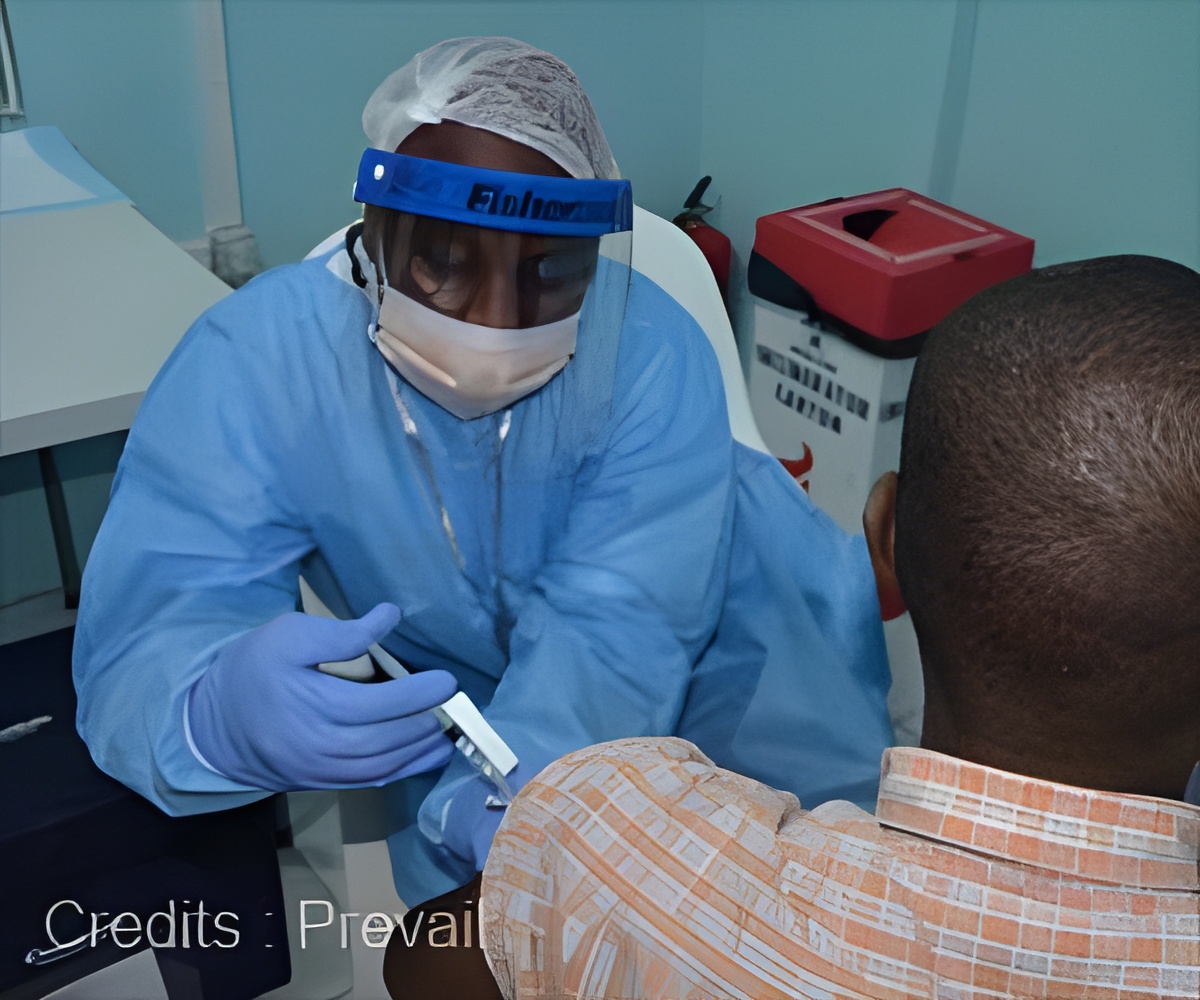New online training programme can reduce the risk of Ebola in health care workers. This programme can train health care workers to take measures to protect themselves using simulation while dealing with Ebola patients.

TOP INSIGHT
The online training program can help keep health care workers safe when treating patients with Ebola
Ebola virus is very easily contracted from body fluids -- a mere ten viral particles will do it -- and people who get it have up to a 78 percent chance of dying. Health care workers are among the most vulnerable.
According to a 2015 report by the World Health Organization, health care workers can have an infection rate up to 32 times higher than the general population in certain parts of the world. Infected health care workers can unknowingly spread the disease, and once sick, are unable to care for patients.
In addition to a human toll, Ebola also exacts an economic one. Treatment of an Ebola patient in the U.S. can range from $30,000-$50,000 per day, limiting the number of hospitals who can treat it, and making its spread a very costly problem.
The best hope for controlling this lethal foe is to prevent it. Researchers at the Medical University of South Carolina (MUSC) have created an online software package via the SmartState spin-off company, SimTunes, LLC, to train health care workers using simulation in safe Ebola disease response. They report promising findings in a small cohort of MUSC health care workers in an article published in the December 2018 issue of Health Security.
"What makes the program unique is that it combines all that information into one training program that is widely distributable."
The software package includes a self-study component, a "hands-on" simulation workshop and a data-driven performance assessment toolset. A post-test evaluates trainees' knowledge of Ebola treatment, and software tracks and scores individual and team performance in Ebola treatment scenarios.
This training package aims to reduce the number of critical errors and risky actions committed when treating an Ebola patient. Critical errors put an individual at risk of infection or contaminate the clean zone. Risky actions increase the chance of committing a critical error.
The researchers tested the usefulness of their software package in 18 health care workers at MUSC, a state treatment center for Ebola. The health care workers were divided into two groups based on their experience level with treating high-risk infectious disease. The software package increased the knowledge of both groups about effective prevention by up to 19 percent.
Both groups also performed extremely well in simulation scenarios, with only 2.3 percent of 341 total steps flagged for critical errors in both groups. These scenarios included cleaning up spills, putting on a biosuit correctly and properly responding to a needle stick. Practicing all of these scenarios helps to reduce the risk of infection of the health care workers treating the Ebola patient.
These results validate this software package as a way to streamline and adequately educate health care workers on proper techniques to reduce infection when treating an Ebola patient.
The MUSC team plans next to test their training program in other health care settings relevant to Ebola. These include community hospitals, where Ebola patients might first be seen, or intermediary hospitals, which would care for them until they could be sent to a treatment center like MUSC.
MenkinSmith, who specializes in global emergency medicine, would also like to test the program in developing countries and is planning to use the course in Uganda.
"I want to see how we can adapt what we have to a place that is a low-resource health care setting, such as a site like Uganda that I am set to visit," says MenkinSmith. Uganda's neighbor, the Democratic Republic of Congo, is currently experiencing an Ebola outbreak.
"Instituting this training at various universities and hospitals across the world will take time and adjustments," says Reves. "However, this represents the beginning of a concrete way to ensure that health care workers are protected from Ebola with just-in-time training anywhere in the world."
Source-Eurekalert
 MEDINDIA
MEDINDIA




 Email
Email









